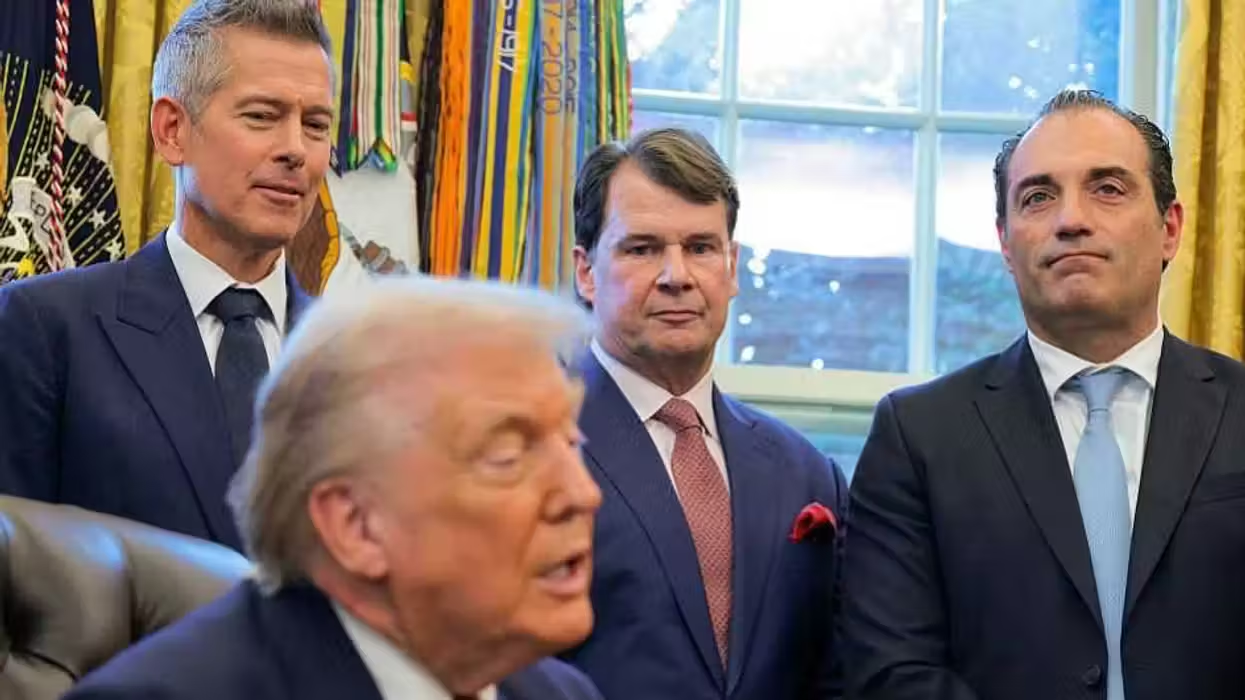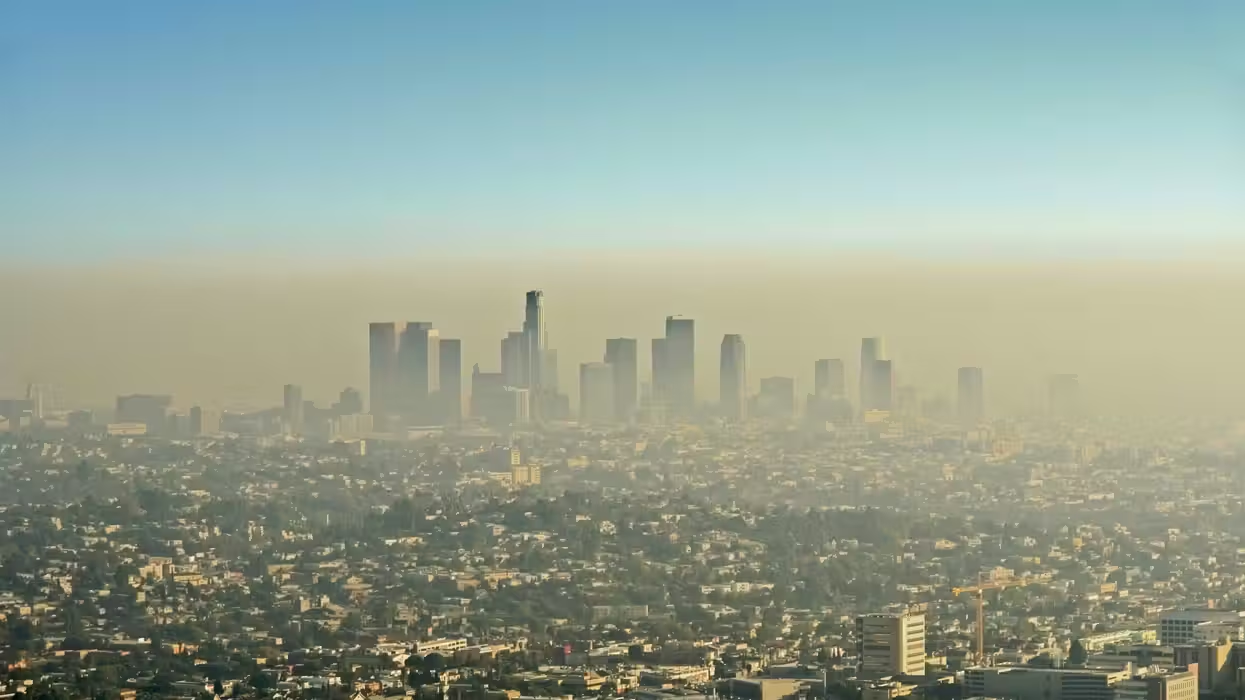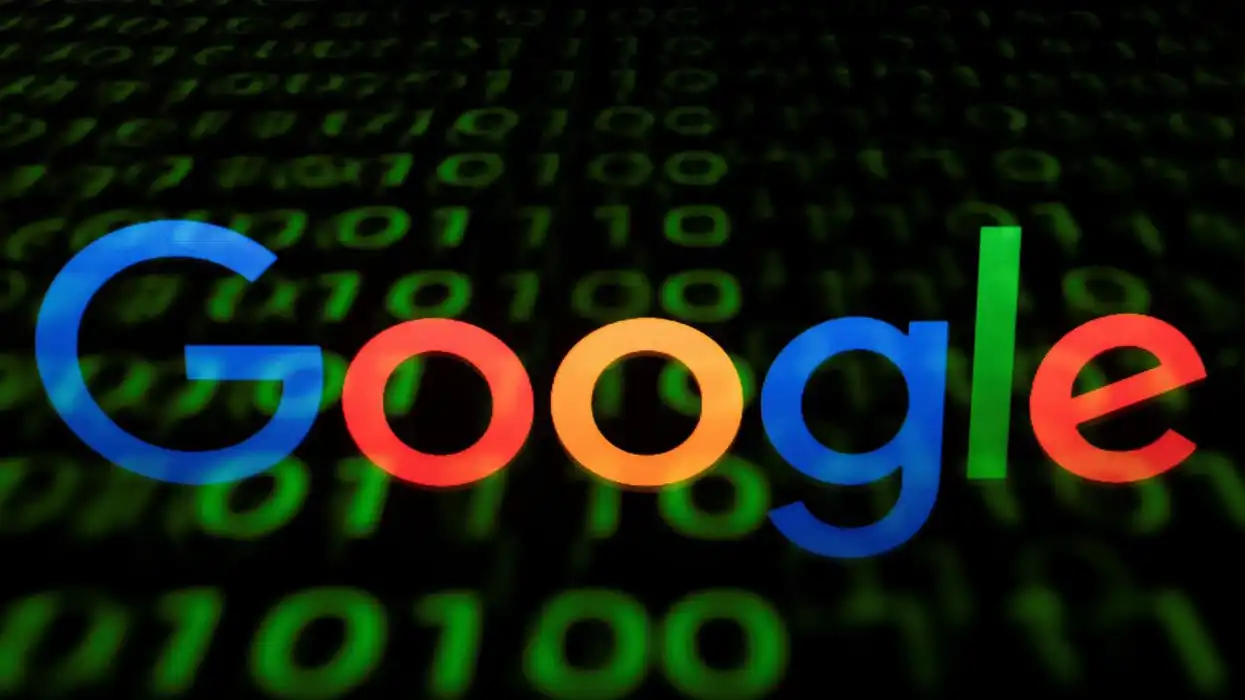Electric vehicles – which the Obama administration has made a hefty investment in – are more damaging to the environment than gas-powered vehicles, according to a study published this week in the Proceedings of the National Academy of Sciences.
The study, done by two University of Minnesota engineering professors, asserts that the electric vehicles produce 3.6 times more soot and smog-related deaths than gasoline.
 President Barack Obama tours a new Opal Ampera, a GM electric car manufactured in the US and to be sold in Europe, on November 20, 2010 at Feira Internacional de Lisboa in Lisbon during a NATO (North Atlantic Treaty Organization) Summit of Heads of States and Government held on 19-20 November 2010. (TIM SLOAN/AFP/Getty Images
President Barack Obama tours a new Opal Ampera, a GM electric car manufactured in the US and to be sold in Europe, on November 20, 2010 at Feira Internacional de Lisboa in Lisbon during a NATO (North Atlantic Treaty Organization) Summit of Heads of States and Government held on 19-20 November 2010. (TIM SLOAN/AFP/Getty Images
“It's kind of hard to beat gasoline,” the study’s co-author Julian Marshall told the Associated Press. “A lot of the technologies that we think of as being clean ... are not better than gasoline.”
The study also says that electric vehicles are worse at trapping carbon dioxide, which creates a bigger problem for global warming. The issue is that most of the electricity to power these vehicles comes from burning coal.
If the vehicles got their electric power from natural gas, wind or other alternative energy production methods – some of which are favored by the Obama administration – the cars would not be as harmful, the study’s co-author Jason Hill told the AP. More than a third of the nation’s electricity comes from coal, according to the Department of Energy.
Just last month, the White House announced an international corroboration to promote the use of electric vehicles.
While President Barack Obama was in China for the Asia Pacific Economic Cooperation Summit, the White House announced it was aligning government regulations and economic incentives with other countries for an Electric Vehicle Interoperability and Research Center by the end of 2015.
“Such actions would ensure that the new wave of environmentally friendly, technologically advanced electric vehicles are safe and convenient to use in order to gain greater acceptance by consumers and a bigger share of the global automotive marketplace,” the Nov. 11 White House statement at the time said.
In October, the Norwegian University of Science and Technology and another 2013 study produced a study with similar results.
A Department of Energy spokesperson did not respond to inquiries from TheBlaze on this story.
Shortly after taking office Obama pledged to have 1 million electric vehicles on U.S. roads by 2015. Since 2009, electric cars have gotten $5 billion in U.S. grants, loans and tax incentives. The administration stepped back on the loans when the vehicles were not a commercial success. Last year, the administration announced it would lose $139 million on a loan it made to Fisker Automotive, a struggling electric automaker.
Weeks away from the start of 2015, fewer than 180,000 electric vehicles are on U.S. roads – far short of the initial 1 million goal – and about 400,000 on the roads worldwide, Investors Business Daily reported, citing Energy Department numbers.

 President Barack Obama tours a new Opal Ampera, a GM
President Barack Obama tours a new Opal Ampera, a GM 





